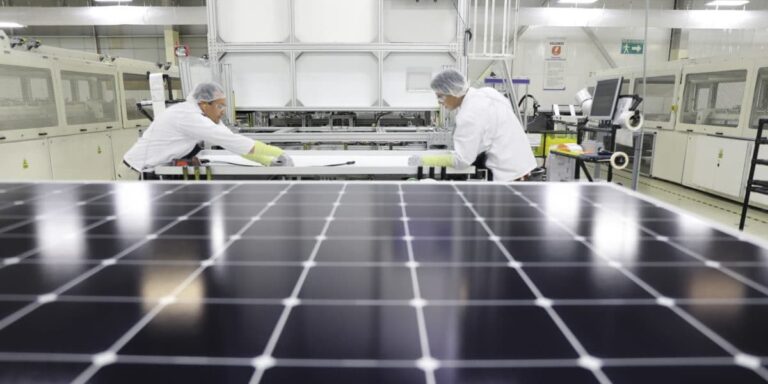Maxeon’s Interdigitated Back Contact (IBC) solar panels were found to distribute heat evenly, leading to lower operating temperatures in the shade and reduced degradation.
Maxeon Solar Technologies conducted a competitive assessment of its Interdigitated Back Contact (IBC) solar panels and found confirmation of their resilience against damaging hotspots.
The company has developed its own IBC solar panels for 40 years. It tested its Maxeon 7 panel line with a range of competing technologies, including half-cell ribbon-based back contact, half-cell heterojunction (HJT) and half-cell front contact tunnel oxide passivated contact panels (TOPCon). Panels were tested in full sun and then switched to partial shade, a condition that forces cells to convert energy from surrounding cells into heat.
Maxeon found that based on the characteristics of IBC cells, including diode functionality, uniform heating and lower breakdown voltage, IBC panels such as Maxeon 7 exhibit more favorable performance in partial shade compared to other module technologies such as PERC and HJT.
IBC panels were found to reduce the risk of long-term degradation of panel materials by better minimizing heat build-up in shaded cells – keeping them an average of 67°C (153°F) cooler than the ribbon-based back contact, HJT and TOPCon technologies tested.
The Maxeon whitepaper explains hotspot risks:
A solar panel maximizes its power generation potential when each cell within an electrical string maintains the same current. When a cell cannot match the current of its neighbors, usually due to the presence of shading or cell cracks, it begins to consume energy from surrounding cells and convert it to heat, also known as operating in a state of reverse bias . As the cell temperature increases, hot spots can form near the obstruction. Hotspots are highly concentrated areas of heat energy that can reach extreme temperatures – temperatures high enough to degrade panel materials by burning the encapsulant and backing plate, and damaging cells and glass.
Maxeon’s research and development team also tested the resilience of panels to heat buildup after deactivating the panels’ bypass diode, standard solar panels’ primary defense mechanism against hot spots. It turned out that the IBC panels continued to limit heat build-up even after the bypass diode was turned off.
“Solar panel manufacturers must continue to pursue improved product design; technology risk should not be the customer’s burden,” said Matt Dawson, Chief Technology Officer at Maxeon. “We believe that many today’s manufacturers are sacrificing the reliability of their products in the pursuit of greater power and efficiency. High-quality solar panels truly maximize customer lifetime value if they can match that performance with low degradation and long-term reliability.”
Find the resilience of the IBC hotspot white paper here.
This content is copyrighted and may not be reused. If you would like to collaborate with us and reuse some of our content, please contact: editors@pv-magazine.com.


